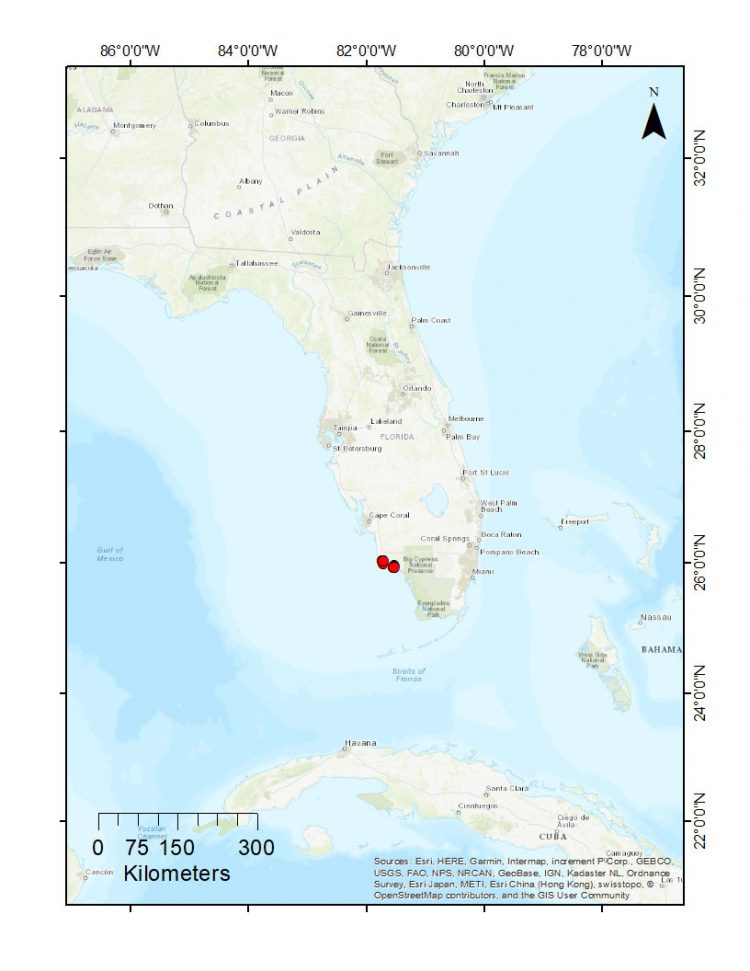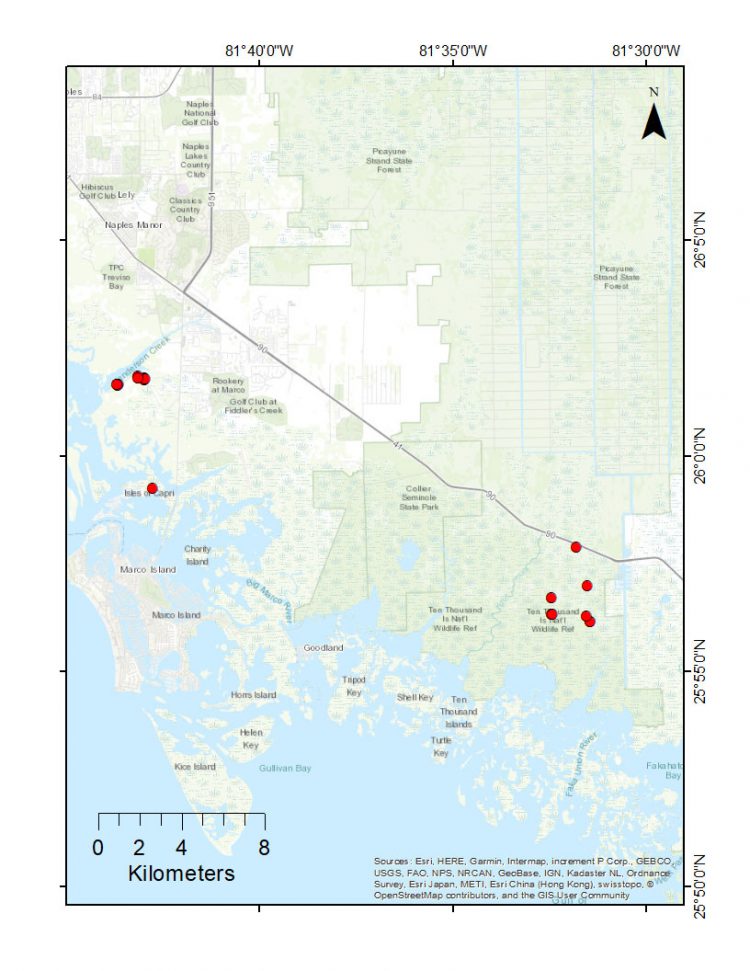Full Title: A Web-Based Interactive Decision-Support Tool for Adaptation of Coastal Urban and Natural Ecosystems (ACUNE) in Southwest Florida
This project is developing a decision support tool to aid resource managers, municipalities, and a county with decisions related to the preservation and restoration of mangrove, marsh, and beach habitats; water management; and coastal planning, zoning, and land acquisition.
The Team: Y. Peter Sheng (Lead Investigator, University of Florida, pete@coastal.ufl.edu), Christine Angelini (University of Florida), Justin R. Davis (University of Florida), Vladimir A. Paramygin (University of Florida), Michael Savarese (Florida Gulf Coast University), Felix Jose (Florida Gulf Coast University), David Letson (University of Miami), Karen Thorne (U.S. Geological Survey), Ken Krauss (United States Geological Survey), and Michael Barry (The Institute of Regional Conservation)
Technical Monitor: Dave Kidwell (david.kidwell@noaa.gov) and Kassie Ernst (kathleen.ernst@noaa.gov)
Federal Program Officer/Point of Contact: Frank Parker (frank.parker@noaa.gov)
This project began in June 2017 and will end in November 2022.
Award Amount: $995,487
Why it matters: Southwest Florida contains the largest area of tidally influenced public lands in the Gulf of Mexico and the fastest growing urban landscape in Florida. Both the human and natural components of the ecosystem are under increasing risk due to the threats of a growing human population, sea level rise, and tropical cyclones. This decision-support tool will aid resource managers with preservation and restoration of mangrove, marsh, beach habitats and adaptation of water management efforts to mitigate future saltwater intrusion in estuaries and their associated habitats.
What the team is doing: This will be accomplished in two steps. First, a suite of coupled state-of-the-art models will be used to create inundation, salinity distribution, habitat distribution, beach and barrier islands vulnerability, and economic impact maps for current and future climates and for various sea level rise scenarios specific to the region. The researchers will then integrate the maps into an Adaptation of Coastal Urban and Natural Ecosystems (ACUNE) web-based interactive decision-support tool that enables users to identify areas of high vulnerability in many layers of interest.
Expected Outcome: This information will be useful for strategic coastal resiliency planning. To ensure the tools use, end-users will be consulted during its development and trained on how to use the tool. End-users will be involved in the development of a decision-support tool to inform decisions in coastal planning, zoning, land acquisition, and restoration using state-of-the-art computer models.
From the seminar “A Web-Based Interactive Decision-Support Tool for Adaptation of Coastal Urban and Natural Ecosystems (ACUNE) in Southwest Florida”
Presenter: Dr. Peter Sheng, University of Florida
Other Resources
Tool helps prepare for sea level rise, coastal flooding in Collier County, Stephanie Byrne, WINK News, April 28, 2021.
How nature can help SWFL fight back against sea-level rise, Evan Dean, NBC-2, May 25, 2021.
Coming Soon
 Official websites use.gov
A .gov website belongs to an official government organization in the United States.
Official websites use.gov
A .gov website belongs to an official government organization in the United States.
 Secure .gov websites use HTTPS
A lock or https:// means you’ve safely connected to the .gov website. Share sensitive information only on official, secure websites.
Secure .gov websites use HTTPS
A lock or https:// means you’ve safely connected to the .gov website. Share sensitive information only on official, secure websites.

